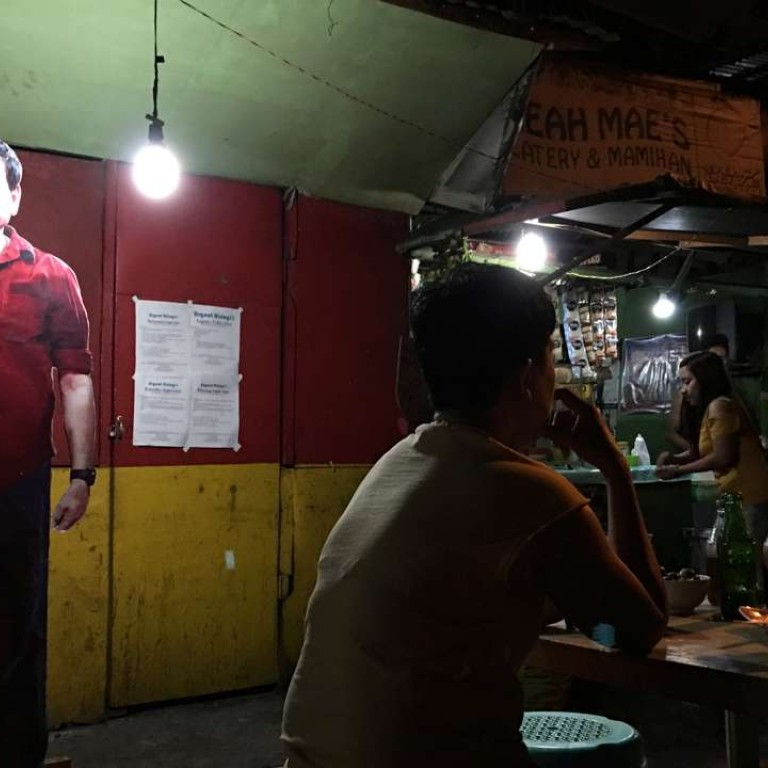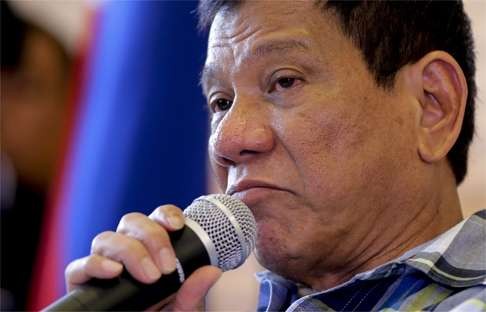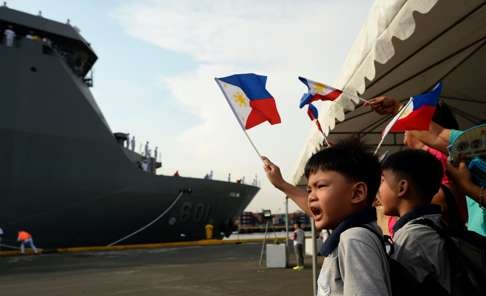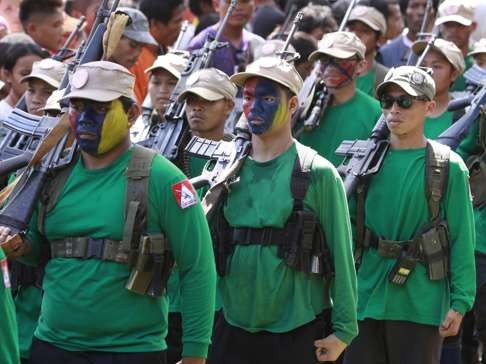
How far will the Philippines’ Rodrigo Duterte go to shake things up?
Philip Bowring says the bravado of the populist candidate’s campaign talk is likely to be tempered by the realities of governance once he takes office as the Philippine president
The recent election in the Philippines shows how frustration and the search for novelty can take countries down unpredictable paths. To the outside world, the country would seem to have been on an upward path over the six-year presidency of Benigno Aquino, with relatively rapid economic growth, a stable currency, falling poverty and an apparent reduction in high-level corruption.
But voters are less influenced by such broad-brush achievements. They measure performance by their daily experiences, something that is just as relevant to Hong Kong’s politics. Manila voters proved as much by voting for Rodrigo Duterte, the uncouth mayor of Davao, a city in faraway Mindanao, despite his parochial attitudes and contempt for the metropolis.
Does Hong Kong need a strongman leader like the Philippines’ Rodrigo Duterte or the US’ Donald Trump?
Visitors can sense the frustrations the moment they arrive at Manila airport, which is not merely more crowded than ever but where taxi and other services are in the hands of rackets. A visitor who dares to sample the metro rail system is immediately struck not merely by the overcrowding but the general squalor. “It makes you feel poor,” remarked a typical middle-class traveller who would
rather spend an extra hour in traffic jams than take the train.

Philippines’ Duterte vows hangings in war on crime
There have long been plans aplenty to tackle Manila’s transport woes but implementation is always in the future. The election result was not just a reflection on Aquino’s favoured successor, Mar Roxas, who was seen as a clean, intelligent guy but lacking a record of getting things done. Likewise, the other candidates, apart from Duterte, were considered too much part of the entrenched political elite to make much difference.
Warts and all, Duterte was not just different, but someone who would make things happen
Duterte followed the Donald Trump tactic of drawing attention to himself with outrageous statements, whether about women or, more effectively, about how he would clean up drugs and crime by, if necessary, gunning down offenders. He carried with him the reputation of having made Davao a clean and safe city.
In the heat of a campaign, there was no time to stop and consider the wisdom of extrajudicial killings or to what extent peace in the city was achieved through deals with leftist and other insurgents in the countryside, or whether he targeted small drug pushers not the big money behind the trade. There was no time, either, to ask whether it was possible to even start replicating policies for a city of two million people throughout a nation of 100 million. On Facebook and other social media, Duterte was the instant hero who would bring order and social justice to a society long run by an elite of old families, business oligarchies and the Catholic Church, whose opposition to birth control has been a major factor behind the extent of dire poverty and homeless children. So, warts and all, Duterte was not just different, not just one who could talk to the people, swear words and all, but someone who would make things happen.
‘The drugs have lessened’: meet the Davao residents who insist Rodrigo Duterte is the right man to lead Philippines

Philippines’ Duterte offers hand of friendship to China
But can he? He has come to office with the vaguest of policy platforms, other than mayor-level issues, a reputation for contradictory off-the-cuff statements – including on China and the South China Sea issue. Nor do most of his early appointments suggest much positive change.
A well-regarded choice for finance minister turned down the offer. Several others are old-timers who served in previous administrations, particularly that of disgraced president Gloria Macapagal Arroyo. Old Manila elite families are well represented, as well as old-time associates from Mindanao. With no experience in national politics or administration, he is having to fall back on those who do.
Just when the South China Sea issue is about to become front-page news around the world with the decision of the Permanent Court of Arbitration in The Hague, he has appointed as acting foreign minister a lawyer with no known experience in this field. He began by promising government posts to the Communists as a peace offering but their leader, the exiled Jose Maria Sison, wants a peace deal first. Meanwhile, his negotiator with them is the same as tried unsuccessfully under Arroyo. What the army makes of these overtures is not yet clear.

Can tough-on-crime Rodrigo Duterte begin to root out endemic corruption in the Philippines?
The Aquino government’s efforts to deal with the Muslim issue with a new autonomy law, which had been close to enactment, is in jeopardy. Duterte has ideas for a federal system for the whole country, very different from the special deal with the Muslim groups, which is opposed by some of his key supporters. As for the Sulu-based Abu Sayaff, a kidnap-for-ransom outfit which masquerades as a believer in Islamic state ideology, it remains to be seen if Duterte the gunslinger can kill enough of them to solve the problem.
Quite how far a strong anti-corruption drive is part of the agenda remains to be seen. He appointed the Davao police chief to head a national police force which does not have the best reputation. Duterte himself is seen as clean in not taking a cut on government contracts. But he has accepted handsome gifts from the private sector.
Duterte in office may prove more effective than his initial appointments suggest. Unlike Aquino, he may well be ruthless in sacking underperforming officials. Many of the better social policies introduced under Aquino are likely to be continued or enhanced. And big business has few fears. So, maybe, after all the noise has died down, not as much will change as needs to.
Philip Bowring is a Hong Kong-based journalist and commentator

